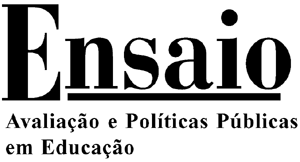The following article presents, in a summarized way, the sociological view of three classic authors - Émile Durkheim, Willard Waller and Philip Jackson - on the relationship between teachers and students in the context of the educational and pedagogical relationship. The three authors argue in favor of a hierarchical view of education and teaching, considering this institutional model to be the best way to envision an interactive dynamic inevitably conditioned by a considerable potential for conflict. All of them consider that the success of education in general, and education in schools, in particular, depends - decisively - on the effectiveness of disciplinary actions, in a context in which the institutional leadership gives support to the teachers' authority. It is a view considered to be traditional and conservative by many people - the authors themselves tend to consider it simply realistic- which challenges several anti hierarchical pedagogical currents, and which, clearly, is at loggerheads with presuppositions and justifications that typify the individualist, narcissistic and hedonistic process of personalization of present-day (post)modern society.
Teaching; Hierarchy; Authority; Power; Leadership
